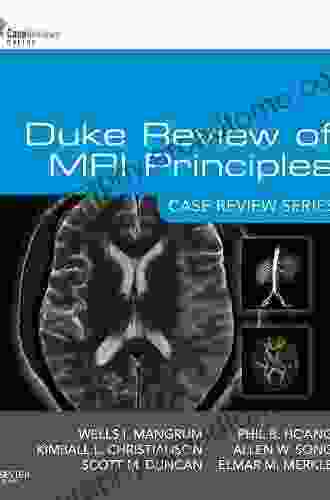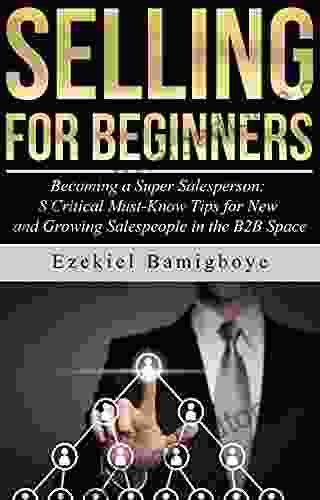Explore Leading Web Test Automation Frameworks and Their Future Driven by Low-Code

In today's fast-paced digital landscape, websites and web applications play a pivotal role in business success. Ensuring their functionality, reliability, and performance is crucial for user satisfaction and driving business outcomes. Web test automation frameworks have emerged as indispensable tools for streamlining and enhancing the testing process, enabling organizations to deliver high-quality web applications with confidence. This article delves into the world of web test automation frameworks, exploring their key features, advantages, limitations, and the exciting future driven by low-code technologies.
Leading Web Test Automation Frameworks
Choosing the right web test automation framework is essential for effective testing. Here are some of the leading frameworks in use today:
5 out of 5
| Language | : | English |
| File size | : | 28451 KB |
| Text-to-Speech | : | Enabled |
| Screen Reader | : | Supported |
| Enhanced typesetting | : | Enabled |
| Print length | : | 304 pages |
1. Selenium
* Open-source and widely adopted * Supports multiple programming languages * Powerful API for detailed control over tests * Requires coding skills for test creation * Image: 
2. Cypress
* Modern and easy-to-use * JavaScript-based, ideal for frontend testing * Real-time testing with visual feedback * Limited support for cross-browser testing * Image: 
3. WebdriverIO
* Open-source and extensible * Supports multiple programming languages * Cross-browser testing capabilities * May require additional setup for complex testing scenarios * Image: 
4. Playwright
* Newer framework from Microsoft * Cross-browser testing with auto-waiting capabilities * Supports multiple programming languages * May require more coding effort than other frameworks * Image: 
5. TestCafe
* Commercial framework with paid support * User-friendly interface and code editor * Self-healing capabilities for maintaining tests over time * Limited integration with third-party tools * Image: 
Advantages of Test Automation Frameworks
* Reduced Testing Time: Automated testing eliminates manual labor, significantly reducing testing execution time. * Improved Test Coverage: Automation allows for more comprehensive testing, covering a wider range of scenarios and ensuring thorough validation. * Increased Accuracy: Automated tests are precise and consistent, minimizing human error and false positives. * Enhanced Speed: Automated tests can run repeatedly and quickly, saving time and resources compared to manual testing. * Cost-Effective: Automation reduces the need for manual testing resources, leading to cost savings in the long run.
Limitations of Test Automation Frameworks
* Initial Development Effort: Creating automated tests requires coding skills and an understanding of the test automation framework. * Maintenance Challenges: Automated tests need regular maintenance and updates as web applications evolve. * Complexity of Certain Tests: Some testing scenarios can be challenging to automate effectively, requiring manual intervention or specialized techniques. * Limited Object Recognition: Automated tests rely on object identification, which can become complex for dynamic or visually similar elements. * Possible Flaky Tests: Automated tests can sometimes fail unpredictably, known as "flaky tests," which can lead to unreliable results.
The Future of Test Automation: Low-Code
Low-code platforms are revolutionizing software development by empowering non-technical users to create applications without extensive coding. This trend is also impacting web test automation, with low-code test automation tools emerging as game-changers. These tools simplify test creation and maintenance, making them more accessible to a wider range of users.
Low-code test automation offers several key benefits:
* Reduced Coding Effort: Low-code tools provide intuitive drag-and-drop interfaces, reducing the need for coding skills. * Faster Test Development: Pre-built templates and code generators accelerate test creation, saving time and effort. * Improved Collaboration: Low-code tools promote collaboration between testers and developers, streamlining the testing process. * Increased Test Coverage: Low-code tools often include AI-powered features that enhance test coverage and reduce manual effort. * Cost-Efficiency: By reducing the need for specialized testing resources, low-code tools can lower testing costs.
Web test automation frameworks play a vital role in ensuring the quality and reliability of web applications. Choosing the right framework depends on the specific testing requirements and resources available. As technology evolves, low-code test automation tools are emerging as the future of web testing, promising to make automation more accessible and efficient than ever before. By leveraging these tools, organizations can accelerate their testing processes, improve software quality, and ultimately deliver exceptional user experiences.
5 out of 5
| Language | : | English |
| File size | : | 28451 KB |
| Text-to-Speech | : | Enabled |
| Screen Reader | : | Supported |
| Enhanced typesetting | : | Enabled |
| Print length | : | 304 pages |
Do you want to contribute by writing guest posts on this blog?
Please contact us and send us a resume of previous articles that you have written.
 Book
Book Novel
Novel Page
Page Chapter
Chapter Text
Text Story
Story Genre
Genre Reader
Reader Library
Library Paperback
Paperback E-book
E-book Magazine
Magazine Newspaper
Newspaper Paragraph
Paragraph Sentence
Sentence Bookmark
Bookmark Shelf
Shelf Glossary
Glossary Bibliography
Bibliography Foreword
Foreword Preface
Preface Synopsis
Synopsis Annotation
Annotation Footnote
Footnote Manuscript
Manuscript Scroll
Scroll Codex
Codex Tome
Tome Bestseller
Bestseller Classics
Classics Library card
Library card Narrative
Narrative Biography
Biography Autobiography
Autobiography Memoir
Memoir Reference
Reference Encyclopedia
Encyclopedia Emmeline Pankhurst
Emmeline Pankhurst Michael Driscoll
Michael Driscoll Eva Link
Eva Link Karen Grassle
Karen Grassle Lacy Coligan
Lacy Coligan Matthew Pollard
Matthew Pollard Felipe Gutierrez
Felipe Gutierrez Miles Carter
Miles Carter Frances Ridley
Frances Ridley Elvis Gjoka
Elvis Gjoka Kelden
Kelden Emanuela Locci
Emanuela Locci Felix Wemheuer
Felix Wemheuer Elyn R Saks
Elyn R Saks Eugene C Toy
Eugene C Toy Emilie Richards
Emilie Richards Emmanuel Falque
Emmanuel Falque Eugene Y Park
Eugene Y Park Matthew Rose
Matthew Rose Kristin Peck
Kristin Peck
Light bulbAdvertise smarter! Our strategic ad space ensures maximum exposure. Reserve your spot today!
 Donald WardFollow ·19.8k
Donald WardFollow ·19.8k Craig CarterFollow ·3.4k
Craig CarterFollow ·3.4k Vincent MitchellFollow ·9.5k
Vincent MitchellFollow ·9.5k Bret MitchellFollow ·9.9k
Bret MitchellFollow ·9.9k Roland HayesFollow ·15.5k
Roland HayesFollow ·15.5k Richard AdamsFollow ·3.6k
Richard AdamsFollow ·3.6k Herman MelvilleFollow ·8.2k
Herman MelvilleFollow ·8.2k Clayton HayesFollow ·16k
Clayton HayesFollow ·16k

 Troy Simmons
Troy SimmonsStories From The Life Of Baha: A Must-Read For Spiritual...
Discover the Inspiring Teachings and Enriching...

 Wesley Reed
Wesley ReedDuke Review of MRI Principles: Case Review - Your Gateway...
Unveiling the Essence...

 Ralph Waldo Emerson
Ralph Waldo EmersonThe Big Book of NFTs: Your Ultimate Guide to the Digital...
In the rapidly evolving world of digital...

 Jason Hayes
Jason HayesUnveiling the Labyrinth: The Cheat Sheet Novel and its...
In the realm...
5 out of 5
| Language | : | English |
| File size | : | 28451 KB |
| Text-to-Speech | : | Enabled |
| Screen Reader | : | Supported |
| Enhanced typesetting | : | Enabled |
| Print length | : | 304 pages |















